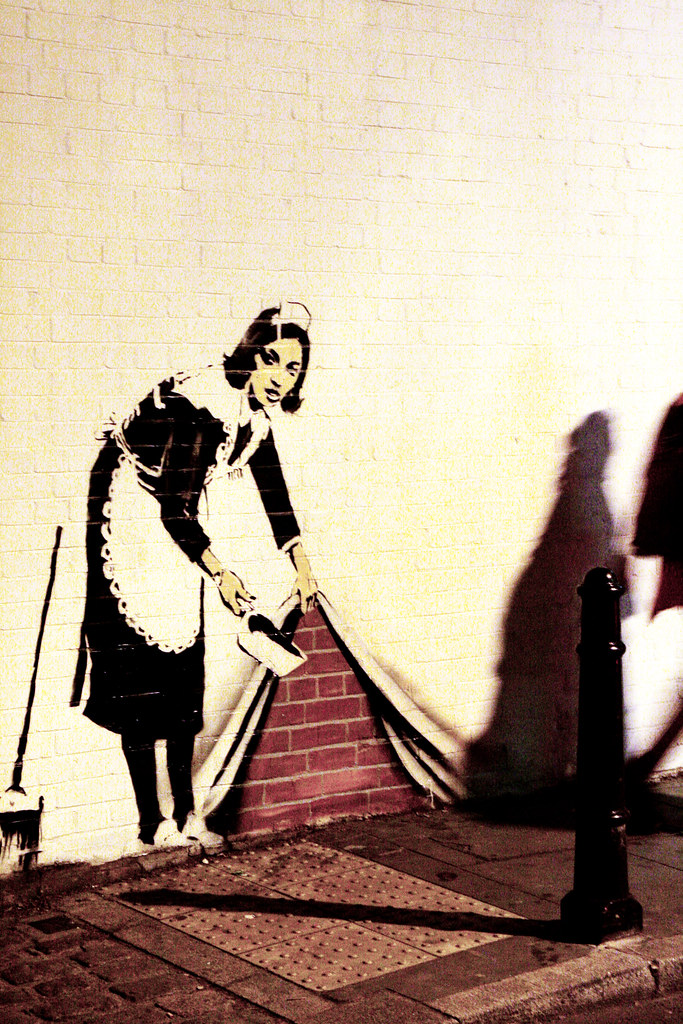To live and work in line with your values- that’s what we’d all want to do, right?
That’s the ideal of Ikigai, which I’ve written about here.This week I’ve been talking with folk who share the freelance life with me. We were dreaming of ways we could work together as our common values, shared ideals, and varied skills made for a compelling possibility. I found myself asserting that issues like diversity, equality and inclusion were as important in freelance work as they were in organisations.
It seems self-evident to us that working ethically is not always easy but that in our experience, the benefits play out in economic terms as well as social ones. Though there was agreement, we found ourselves without the time to work it through, and I left saying that I’d think it over. This post is the first part of my promise, but it needs work. I hope you can help.
So, here are 3 ways freelancers, alone or in small agencies, can walk the walk of social justice in their consulting, creating or making.
Do your homework
Before you take on a new client, it’s worth finding out a little about them. Who owns them? Do they pay their fair share of tax (looking at you Facebook)? Do they sell arms to oppressive regimes? Do they create advertising campaigns that make your stomach turn?
You might not feel you have a choice about who you work with, or that you have to keep quiet about unethical practice to get paid or to keep to the terms of a contract. But at some point you might need to know enough about their business to avoid getting your work included in something dodgy.
One way of doing business is to accept anybody and everybody who comes along. After all, you want to pay the bills, right? However, at some point, if you’ve got what entrepreneurs call ‘product-market fit’ you will have more work than you can manage. At this point you will need to use some kind of criteria to accept some work while turning down other pieces of work. One way of making these decisions is by gauging how much different clients are willing to pay you. But there are other ways. This is the perfect opportunity to bring in criteria such as your ethical standards and social justice concerns.
Place one line in the sand
Don’t be afraid of your politics, and don’t scare others with it. Your primary obligation is to the client, but that doesn’t mean you leave your values behind when you walk into their offices. Pick *one* issue, and explain how you believe it can help the work you are doing for the them. Be friendly, not ranty…but raise the issues that matter to you. Not everything can be about saving the planet – and sometime sourcing materials from a dictatorship might seem unavoidable. But, for example… any saving made buying from bastards, could be make up with sales that increase due to an ethical purchasing banner. Race, Global Citizenship, Gender equality…, whatever – it matters! If you are looking at budgets, ask why female staff are being paid so much less than male team members? Tilt their worldview, while being a kick-ass freelancer.
Be open and transparent
Work, as much as you can, in the open. Not everyone can blog about their work in public, but there are intranets, and meeting minutes, and other ways to record discussions in the workplace. Find them. Use them. Don’t rant in emails! Make sure there are plenty of people in the room when you raise an issue (especially where there are HR implications) , and make sure your broader view is minuted, not just your criticisms.
I am sure that 90% of every unfair pay deal for women has been made behind closed doors, by a room full of men (unfounded assertion). And I am sure that in at least some of them, someone has disagreed. Consultants and freelancers are often paid to be the people that say the difficult things, so even if you think no one heard you, your evidence for change might be appreciated by someone!
So, what do you reckon? Are these the right 3 things to start with? Is this even possible or desirable from a freelancer? What else should we consider?
This is just a start in my thinking on this, and I’d love your feedback on these ideas, or thoughts on how to do it better. We all want better government, fairer communities, and decent places to work. So, start with the smallest unit. You.
—–
My name is Eylan Ezekiel and you can find more about me here or on LinkedIn. I specialise in creating great communication in the education space, and would love to help your organisation to grow with the evolving digital landscape in learning. Get in touch at eylan@ezekiels.co.uk or on Twitter

